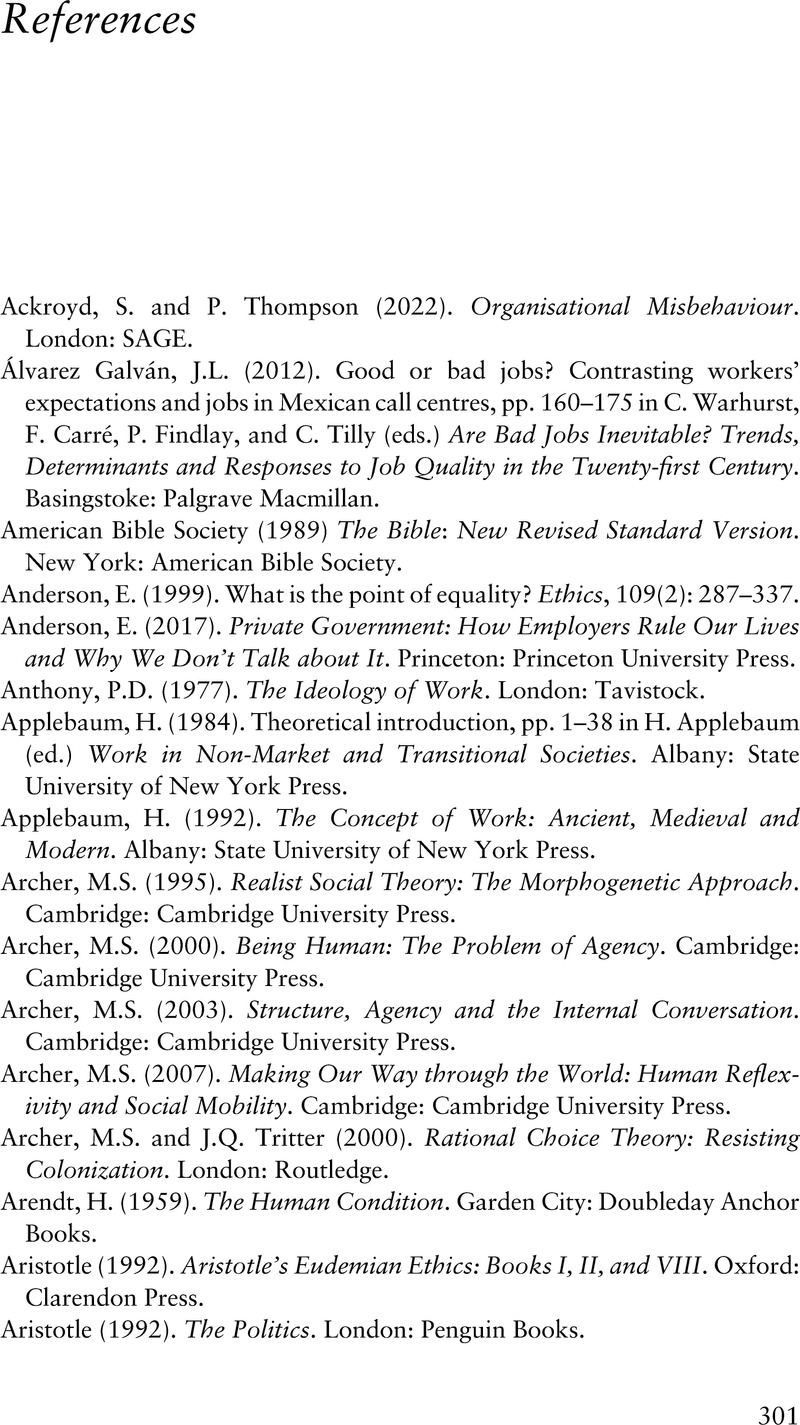Book contents
- The Politics of Working Life and Meaningful Waged Work
- The Politics of Working Life and Meaningful Waged Work
- Copyright page
- Contents
- Tables
- Preface
- Acknowledgements
- 1 Meaningful Work
- Part I Problems in Analyses of Meaningful Work
- Part II Theoretical Traditions in Analysing Meaningful Waged Work
- Part III Meaningful and Meaningless Waged Work
- References
- Index
- References
References
Published online by Cambridge University Press: 02 November 2023
- The Politics of Working Life and Meaningful Waged Work
- The Politics of Working Life and Meaningful Waged Work
- Copyright page
- Contents
- Tables
- Preface
- Acknowledgements
- 1 Meaningful Work
- Part I Problems in Analyses of Meaningful Work
- Part II Theoretical Traditions in Analysing Meaningful Waged Work
- Part III Meaningful and Meaningless Waged Work
- References
- Index
- References
Summary

- Type
- Chapter
- Information
- The Politics of Working Life and Meaningful Waged Work , pp. 301 - 329Publisher: Cambridge University PressPrint publication year: 2023

